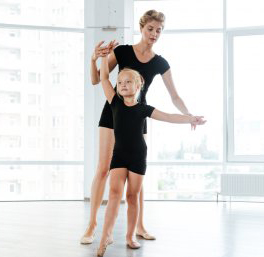Study investigates age when children start to regulate their learning
 Led by UQ School of Psychology PhD student Melissa Brinums, the study, published in Child Development investigated the age at which children start to regulate their own learning to achieve their long-term goals.
Led by UQ School of Psychology PhD student Melissa Brinums, the study, published in Child Development investigated the age at which children start to regulate their own learning to achieve their long-term goals.
“As adults, we learn skills and information for the future on a regular basis, but we know very little about how children develop this capacity,” Brinums said.
The researchers tested 120 children aged four to seven years. Children in one room were shown three games involving motor skills and told they would be later tested on one of them, the target game, winning stickers based on their performance.
Children were then brought to a different room with replicas of the games they had seen in the first room and told they had five minutes to play with any of the games before returning to the first room for the test.
The researchers anticipated that children who understood that practice could help their future performance would spend more time playing the target game than the other two games.
After playing, children were asked which game they played the longest and why, what they could do to improve on the games, and if they could explain what practice was.
“Most six and seven year olds explained what practice was and knew that it helped improve their skills, and most played the target game longer than the other games and said they did so to practise for the test,” Brinums said.
“Most five year olds showed an understanding of practice and spent slightly longer playing the target game; however, when asked why they had chosen to play that game, most gave reasons other than practice, for example, because it was easy or fun.
“Most four year olds didn’t spend more time playing the target game, and didn’t understand the concept of practice.
“Metacognition, the capacity to reflect on and monitor mental states, plays an important role in allowing children to monitor and control their own learning.”
The study provides the first empirical evidence on the development of both the understanding and engagement in deliberate practice in children between four and seven years of age. It also provides important insights into how children start to regulate their own learning with their future in mind.
“Our findings suggest that it may be beneficial to start having conversations with children as young as six about their future goals, and encourage them to think about and work toward those goals,” Brinums said.